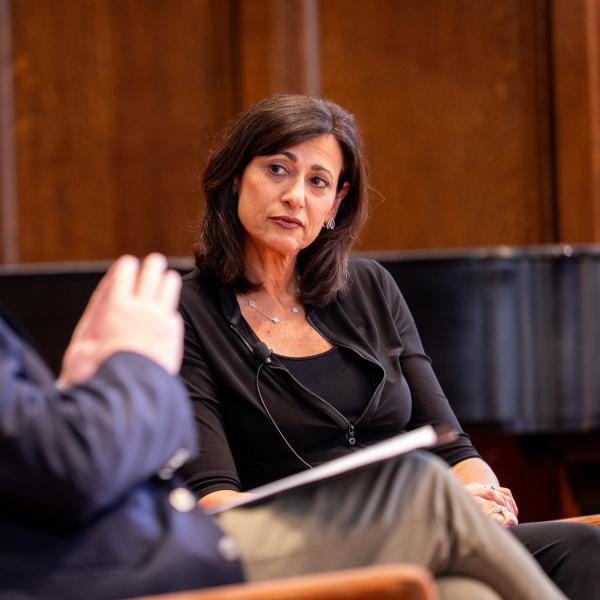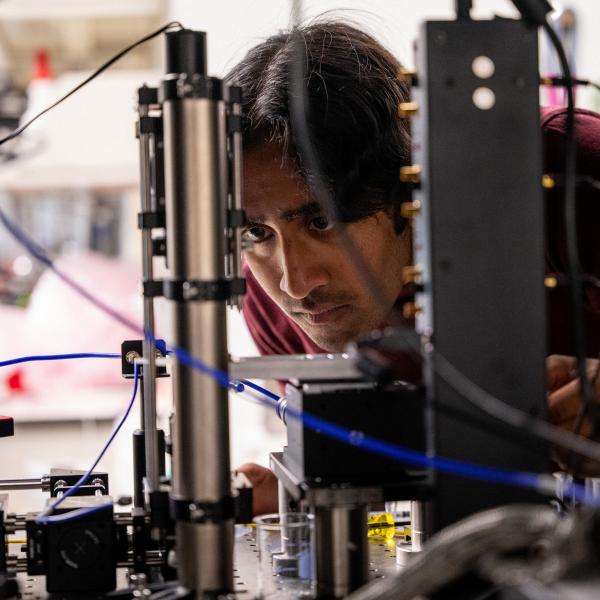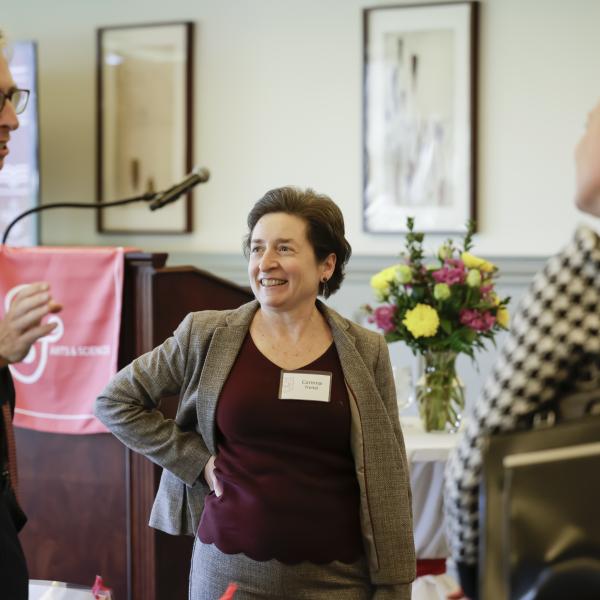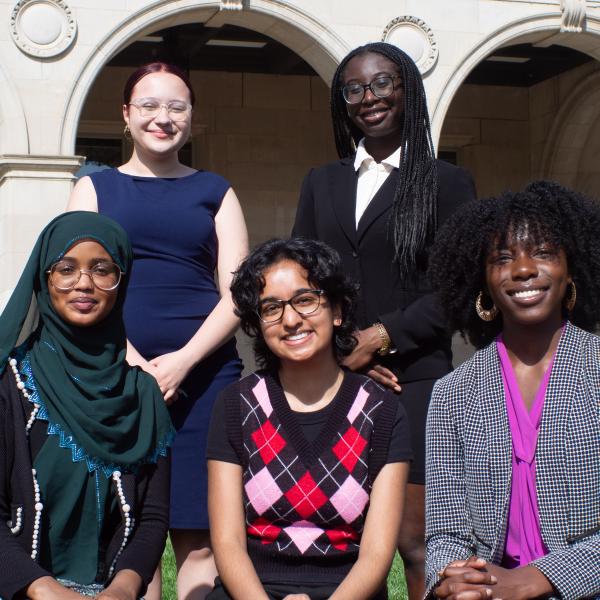Francisco Buera joined the Arts & Sciences faculty this fall and will soon be installed as the Samuel B. Cook Professor in Economics. He and his wife Ana Babus, who also joined the economics department this year, both most recently worked at the Federal Reserve Bank of Chicago. The Ampersand sat down with Buera for our series highlighting new faculty.
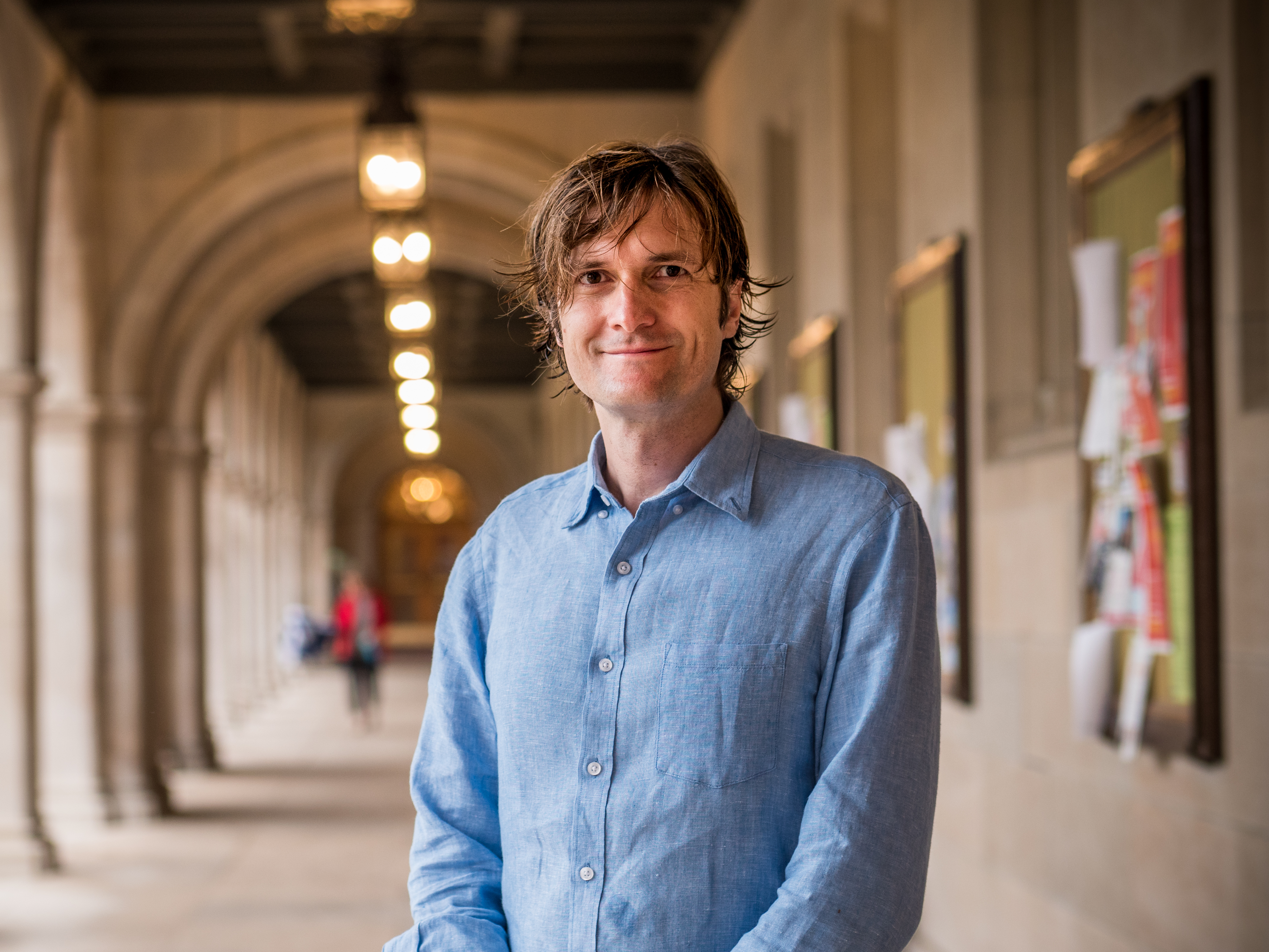
What drew you to Washington University?
It’s a very exciting academic department. Some of my new colleagues are people I already knew and respected a lot. Some of them I knew when I was a student in Argentina, and some are renowned scholars in the field. This is a place where there are a lot of people working in the areas where I work, in economic growth and development. It’s a very exciting research environment for me.
Within economic growth and development, what are some research questions that interest you?
Ultimately, growth and development is about understanding what makes countries succeed in terms of making most people in the society have a good standard of living. That’s always a very exciting and challenging question. I tend to work on a bunch of different sub-questions. For example, I work on understanding the role of trade in development. That’s always a bit contentious, so it’s exciting to think of the arguments back and forth. I also have a project on the service economy, and more broadly on structural change. That’s always in the public debate, because people are worried about particular jobs disappearing or going abroad.
I’ve also been working the last few years on looking at microdata from Portugal on credit relationships within firms and banks. That’s an area where there’s been a lot of work recently. Following the worldwide financial crisis, we have rich data sets on when and who do firms get credit from, and which types of credit. Portugal is a country that had a very large financial crisis in 2010-12, and I’m trying to understand the impacts of the financial crisis on these firms and what can we learn from those experiences.
When you’re not doing macroeconomics, what are some activities you enjoy?
We have a 2-year-old daughter, so we spend a lot of time with her. I like reading a lot. I like reading history, history of science, history of technology, and sometimes fiction. Right now I’m going through The Silks Roads, a history of the world from the point of view of central Asia.
In your first few months here, have you found a favorite spot on campus?
I bike from home, and I like biking by Mudd field. It’s a nice perspective of campus. It’s very crowded and a little dangerous for the walkers – but at off-times I like biking through that part of campus.
Are you teaching this semester? What about teaching do you enjoy?
I’m teaching a growth and development undergraduate class and a second-year graduate class. I enjoy taking students from looking at data and then developing models and mathematical theories that allow you to think through and connect with the data – also the non-obvious implications of models. A model would be a set of assumptions, and then you’re going to have some implications. Some of them are obvious. Some are not that obvious and change your perspective on a subject. With the undergraduates, that step can be magical – you’re opening someone’s eyes about a specific economic question.
You most recently worked at the Federal Reserve Bank of Chicago. Are there differences between working for that sort of institution and a university?
There are good things about each of them. Part of the reason we’re here is that we looked forward to being in an academic environment. The Federal Reserve in Chicago had a great research department – very high quality – and had a lot of macroeconomists. But the questions of interest to the bank are less close to the questions I’m most interested in, in terms of economic development. The questions you’re asking there tend to be more about the U.S. economy and monetary policy and so forth. You’re very close to policy-related discussions. But on the other hand, you don’t set the agenda for what you’ll be discussing. In the university, for the courses that you teach and how you teach them, you set up the agenda. That’s something I value. Universities are attractive in the sense that it’s a very universal set of interests. Being exposed to different people studying different questions is very exciting, and I’m very happy to be here.
Learn more about Francisco Buera by reading his faculty profile or visiting his website.
